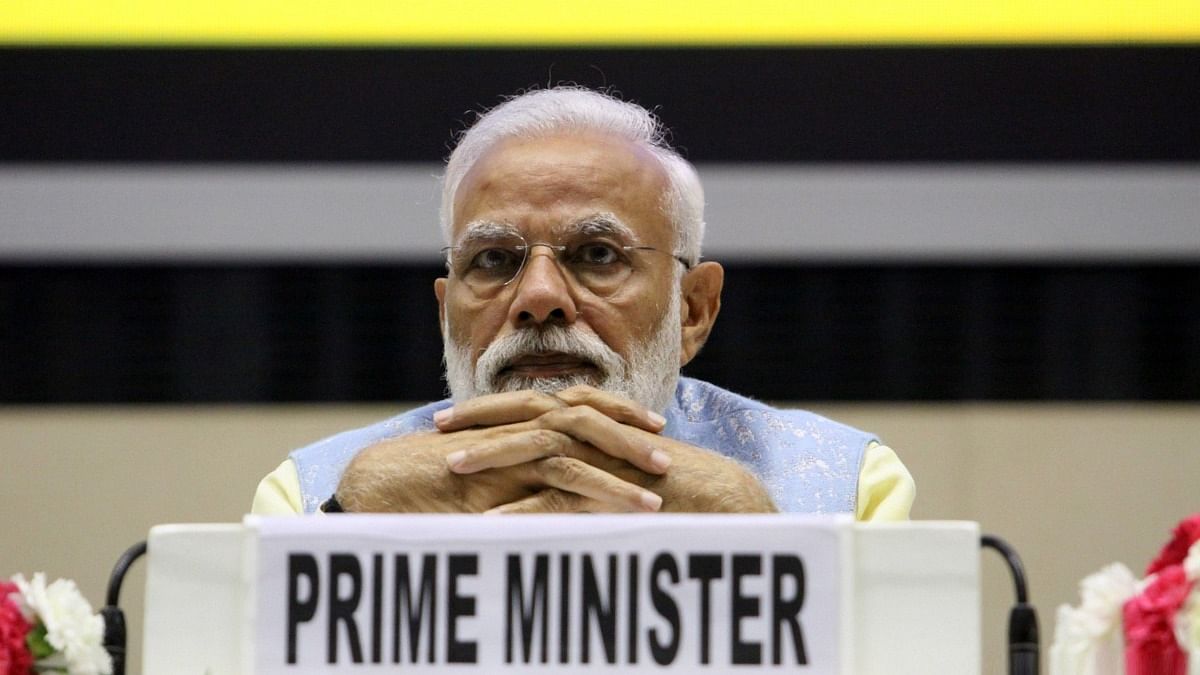
ThePrint
Modi govt’s 11 Covid empowered panels now replaced by six larger groups
Of the six groups — constituted to look into various aspects of the management of Covid-19 — four are headed by departmental secretaries and one each by NITI Aayog officials.
by Abantika GhoshNew Delhi: The 11 empowered groups that were constituted by the Modi government to look into the various aspects of the management of Covid-19, have now been replaced by six larger groups — four of them headed by departmental secretaries and one each by NITI Aayog officials.
Of the six empowered groups (EGs), EG 1 is headed by NITI Aayog member Dr V.K. Paul. This group will deal with medical infrastructure and Covid management plan.
EG 2, headed by Guruprasad Mahapatra, secretary department for promotion of industry and internal trade, will work on ensuring availability of essential medical equipment and augmenting human resources.
EG 3, headed by NITI Aayog CEO Amitabh Kant, will be coordinating with the private sector, NGOs and international organisations for response-related activities.
Tarun Bajaj, secretary, department of economic affairs, will head EG 4 that will deal with economic and welfare measures, while EG 5, led by information and broadcasting secretary Amit Khare, will look at information, communication, public awareness, public grievances and data management.
The last group will be headed by Home Secretary Ajay Bhalla and will deal with strategic issues related to Covid management, and facilitating supply chain and logistics management.
The government order, accessed by ThePrint, dated 11 September stated that the situation has been reviewed and “a need have been (sic) felt to reconstitute the eleven empowered groups into six groups in view of current requirements of managing the Covid-19 pandemic”.
The groups have been constituted under the National Disaster Management Act 2005.
Also read: Bust fake news, ensure positive Covid-19 media coverage: Task for new govt empowered group
First constituted in March
The empowered groups were first constituted on 29 March, five days after the lockdown was announced, to look into the various aspects of Covid management.
The groups have now been condensed so that one group is tasked with two or more functions that were earlier assigned separately.
The group that Bhalla headed earlier was EG 11, which was tasked with looking at strategic issues related to the lockdown. But with lockdowns over now, the group has a revised mandate now as EG 6.
Among the members of this group are Dr V.K. Paul, secretary food and public distribution Sudhanshu Pandey, secretary consumer affairs Leena Nandan, secretary coordination cabinet secretariat Dr V.P. Joy, joint secretary civil aviation Usha Padhee and joint secretary cabinet secretariat Ashutosh Jindal.
Among the members of the group headed by Dr Paul are secretary department of biotechnology Dr Renu Swaroop, AIIMS director Dr Randeep Guleria, additional secretary health Vandana Gurnani, additional secretary drinking water and sanitation Bharat Lal, joint secretary health Lav Agarwal and joint secretary cabinet secretariat Amandeep Garg.
The group on medical equipment and human resources has secretary pharmaceuticals P.D. Vaghela, secretary textiles Ravi Capoor, secretary AYUSH Rajesh Kotecha and Dr P. Ravindran from the emergency medical response division in the ministry of health as its members.
EG 3 members include principal scientific advisor Dr K. Vijayaraghavan, additional secretary home ministry Anil Malik, deputy secretary cabinet secretariat Dr Tina Soni and NDMA member Kamal Kishore.
Among the members of the economic measures group are secretary expenditure T.V. Somanathan, secretary rural development N.N. Sinha and joint secretary PMO Arvind Srivastava.
The members of the group headed by Khare include home ministry joint secretary Punya Salila Srivastava, secretary of Ministry of Electronics and Information Technology Ajay Sawhney, joint secretary health Padmaja Singh and OSD PMO Hiren Joshi.
Also read: India’s response to coronavirus can’t be based on existing epidemiological models